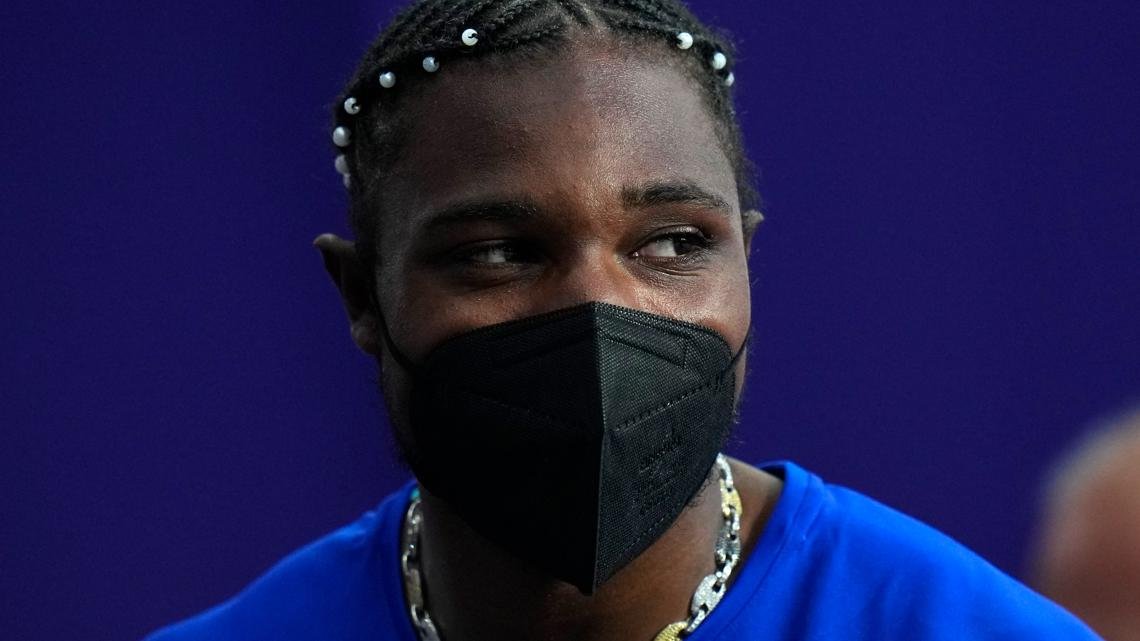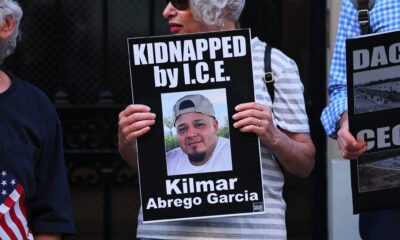coronavirus
Olympian Revival: Noah Lyles and COVID-Hit Athletes Return to Compete in Paris

Organizers have issued health recommendations, but no restrictions, for dozens of athletes who have tested positive for COVID during the Paris Olympics.
PARIS, France — Many hoped the Paris Olympics would symbolize a post-COVID era. Instead, they have become what some are calling the ‘’who cares about COVID’’ Games.
Noah Lyles, who won a bronze despite the virus, is among dozens of athletes testing positive at the Games. Yet, organizers have opted for health recommendations over restrictions, allowing athletes to compete if they feel up to it.
This approach stands in stark contrast to the Tokyo Olympics in 2021. Those Games were delayed a year and held under strict COVID-19 regulations with no fans. The Winter Games in Beijing six months later saw even stricter protocols under China’s zero-tolerance policy.
In Paris, events evoke pre-COVID times. French locals have revived traditional greetings like “la bise.” Fans reach out to slap athletes’ hands, and masks are a rare sight among supporters. Visitors are not required to show proof of vaccination or negative tests.
Earlier this week, the World Health Organization reported that at least 40 athletes at the Games have tested positive amid a global rise in cases.
On Thursday night, Noah Lyles was taken off the track in a wheelchair after placing third in the 200 meters. He revealed he had tested positive for COVID two days earlier.
Last week, British star Adam Peaty tested positive less than 24 hours after winning a silver medal in swimming. He disclosed feeling ill a day before the 100-meter breaststroke final.
The Australian delegation said five COVID-positive members of its women’s water polo team were cleared to practice once they felt well enough.
“COVID is being treated like any other respiratory disease,” International Olympic Committee President Thomas Bach said. “It’s now like the flu, so there’s no need for special measures or notifications.”
COVID is no longer a global health emergency according to the WHO. With higher vaccination rates compared to previous Olympics, COVID is treated as another respiratory illness. However, there is a global surge, with most cases being mild unless individuals are over 65 or have pre-existing conditions.
A Paris 2024 spokesperson emphasized that athletes experiencing symptoms are reminded of “good practices,” such as masking, limiting contacts, and washing hands regularly. National Olympic committees and federations can impose additional measures if they wish.
The Olympic Village features a clinic offering a broad range of healthcare services at no cost to athletes.
The Tokyo Games in August 2021 occurred before many countries had completed their immunization programs when vaccine supplies were still limited. Athletes, media, and visitors had to submit daily saliva samples for testing. Surges in positives outside the Olympic bubble prompted widespread states of emergency.
Any positive tests led to immediate isolation at a separate “COVID hotel.” Symptomatic individuals were hospitalized.
Olympic visitors required two negative COVID tests before flights to Japan, and another upon arrival.
Dining facilities had screens between seats and diners wore gloves to pick up food, with no fans allowed at events, creating eerie, echoing stadiums where coaches’ instructions were clearly heard.
The Winter Games in Beijing in February 2022 had even stricter rules, under China’s policies.
Olympic organizers in Beijing operated a health security bubble, or “closed-loop management system,” encompassing vaccinated persons before, during, and after the Games.
No fans from outside China were permitted. Media and officials had to present negative tests.
Chinese volunteers had to quarantine alone in hotel rooms for three weeks before and after the Olympics, receiving food deliveries and not leaving their rooms.
Anyone testing positive was immediately isolated.
France once had stringent COVID restrictions, including lockdowns, mandatory outdoor mask-wearing, an 8-month curfew, and vaccine mandates. These measures were lifted last year. France now only advises following basic health recommendations as preparation for what organizers call the “Games Wide Open.”
Kate Brumback in Paris and Maria Cheng in London contributed to the story.


















